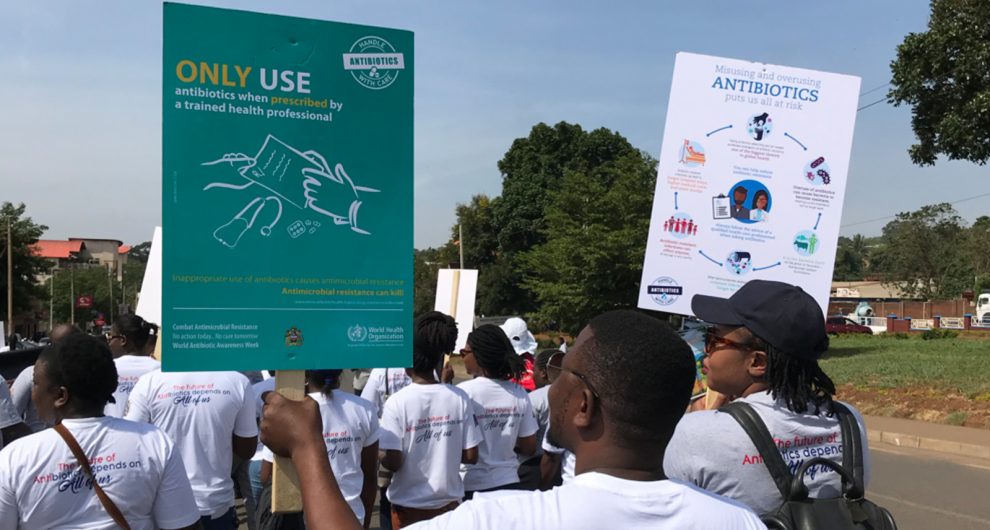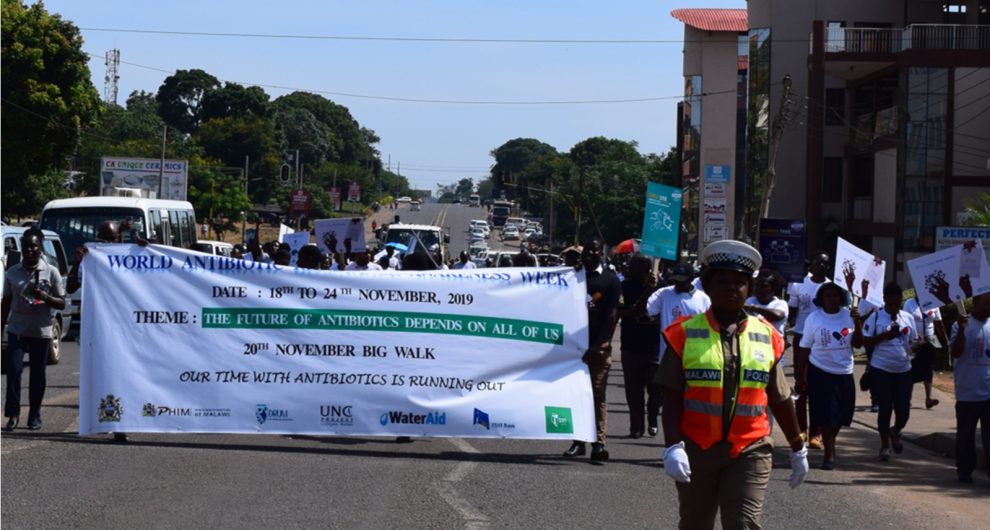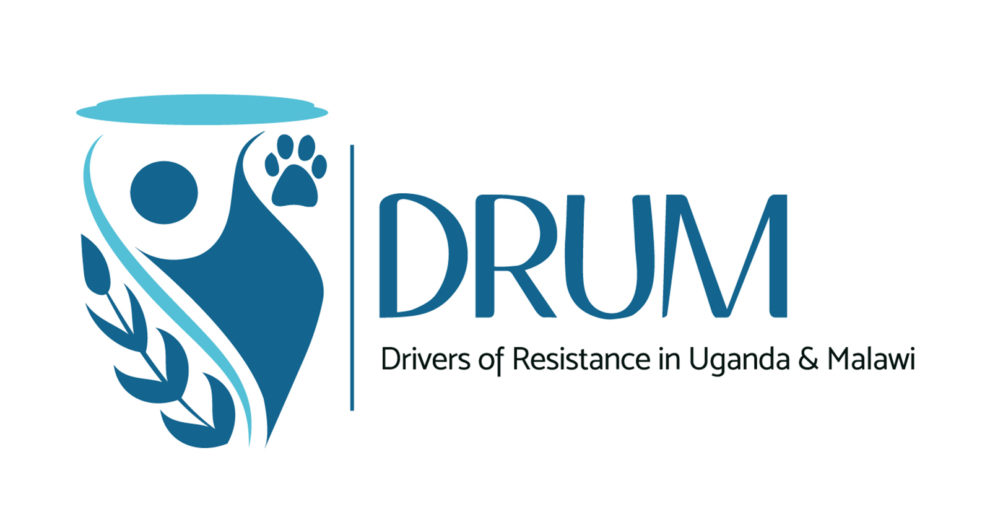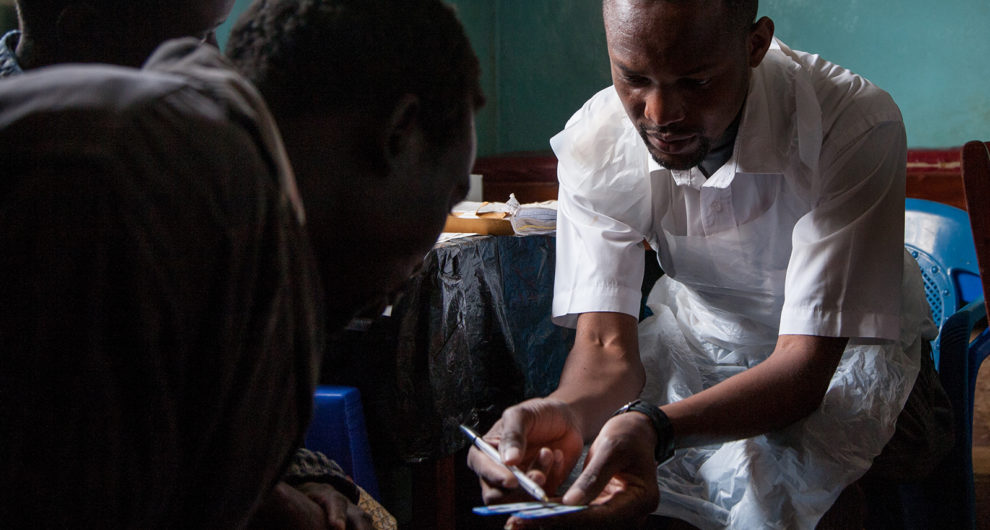Drivers of Resistance in Uganda and Malawi




The growing threat of drug-resistant bacteria is well recognised. Low- and middle- income countries are likely to be more severely affected due to overstretched health systems and poor access to alternative antibiotic regimes. Generating evidence on antimicrobial resistance (AMR) in low resource settings, as well as developing and implementing effective policy to tackle AMR, is vital. A meaningful response will require coordination between a range of different sectors including human health, animal health, environment and agriculture.
The DRUM Consortium sought to address how human behaviour and antibacterial usage in urban and rural Africa leads to the transmission of AMR amongst E. coli and K. pneumoniae in humans, animals and the environment and influences the clinical impact of drug-resistant bloodstream infection (DR-BSI) in humans. DRUM sought to develop agent-based models that will enable the prediction of how these transmission pathways can be interrupted. DRUM’s vision is to establish Ugandan and Malawian sites as sustainable model settings for interdisciplinary study and mitigation of AMR by embedding a One Health strategy at the heart of a consortium that will generate outputs applicable to similar communities throughout East and Southern Africa and beyond.
AFIDEP’s worked as part of the DRUM Consortium is two-fold: to investigate barriers to and facilitators of collaborative policy development in Malawi, and to coordinate efforts around policy engagement and strategic communications for the whole consortium.
The consortium’s policy study investigated key actor’s perceptions of the barriers between sectors to sustainable, collaborative development of policy in line with the Malawi antibacterial resistance strategic plan; analyse the wording and phrasing used by key stakeholders while discussing antibacterial resistance control and how these shape their approaches to policy development and implementation if at all; document gaps in the antibacterial resistance control policy across human and animal health and environmental sectors compared to countries’ national plan; and document the processes through which the antibacterial resistance control policy development and implementation evolve over time in Malawi and Uganda, over a 2 year period.
For consortium-wide policy engagement and communications, AFIDEP represented DRUM in the national Antimicrobial Resistance core group and Technical Working Group meetings and discussions. It further conducted a regional policy analysis for AMR from which a policy engagement strategy was developed that led to the development and implementation of a communications strategy for the DRUM consortium. These aided in regular and appropriate engagement of stakeholders that have an influence on policy across the One Health spectrum.
To create public awareness on AMR, AFIDEP joined Malawi Ministry of Health and Population and other key stakeholders on 20 Nov 2019, in a ‘Big Walk’ in Lilongwe, Malawi for the Antibiotic Awareness week.
To learn more about antimicrobial resistance, and the DRUM consortium’s One Health approach to understanding how water, sanitation and hygiene practices interact with antimicrobial usage to facilitate the transmission of AMR- bacteria in Uganda & Malawi, download the factsheet here, information sheet here, and the comics used to create awareness about AMR here.
AMR OUTPUTS:
- Info Sheet: Drivers of Resistance in Uganda and Malawi
- Antimicrobial stewardship in Malawi: Optimising antibiotic usage
- Water, Sanitation and Hygiene (WASH) Practices: World Antimicrobial Awareness Week 2020
- Sepsis and Antimicrobial Resistance in the Era of COVID-19: Overcoming Global Health’s Triple Crisis
- Sepsis and antimicrobial resistance: An urgent call to strengthening health information systems
- Sepsis & Antimicrobial Resistance – Chichewa (Timveni TV Interview)
- Antimicrobial Resistance: A Global, One Health Concern
- Antimicrobial Resistance: A Global, One Health Concern – Factsheet
- Antimicrobial Resistance: A Global, One Health Concern – Dr Joseph Nkhoma
- The role of the media in the fight against antibiotic resistance: Antibiotic Awareness Week 2019
- What is Antimicrobial Resistance (AMR)? – Chichewa
- What is Antimicrobial Resistance (AMR)? – English
- Raising public awareness on antibiotic resistance in Malawi: Antibiotic Awareness Week 2019
- The Big Walk: Antibiotic Awareness Week 2019 Highlights
- Antimicrobial stewardship in Malawi: Optimising antibiotic usage
- Sepsis & Antimicrobial Resistance – Chichewa (Timveni TV Interview)
- Water, Sanitation and Hygiene (WASH) Practices: World Antimicrobial Awareness Week 2020
- Evidence-use in policy formulation training: Ellen Banda
- Evidence-use in policy formulation training: Dr. Elias Phiri
- Evidence-use in policy formulation training: Lloyd Mpinganjira
- Evidence-use in policy formulation training: Dr. Marcia Macuvele
- Evidence-use in policy formulation training: Dr. Bayode Adegbite
The DRUM Consortium was made up of researchers from the following institutions
● Liverpool School of Tropical Medicine
● African Institute for Development Policy
● Centre for Ecology and Hydrology
● Lancaster University
● Malawi Liverpool Wellcome Centre
● University of Liverpool
● London School of Hygiene & Tropical Medicine
● Makerere University (Mak)
● Institute of Infectious Diseases (IDI)
● University of Strathclyde
● Wellcome Trust Sanger Institute
AFIDEP’s work was specifically to identify and address barriers between in-country sectors involved in AMR control for the delivery of appropriate policy.
Key Details
| Dates: | March 2018 to June 2022 |
| Aim: | DRUM was a consortium whose aim was to transform the understanding of the drivers of antimicrobial resistance (AMR) in Uganda and Malawi, and design interventions to reduce AMR spread. |
| Where: | Malawi , Uganda |
| Project Manager: | Tumaini Malenga |
Related Items
Related Events
Nov 2022
Aug 2022
Apr 2022
Nov 2021
Aug 2021
Apr 2021
Nov 2020
Nov 2020

